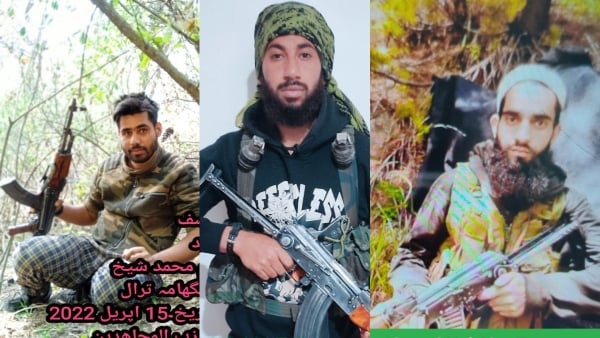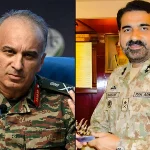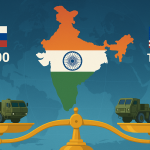A fresh twist has emerged in the ongoing counter-terror operations in Jammu and Kashmir as Pakistan-backed terrorist outfit Hizbul Mujahideen has claimed responsibility for three militants killed in an encounter earlier today in Tral, Pulwama district. The claim was made via a propaganda poster released by the group, prominently displaying the Pakistani flag alongside their emblem, once again underscoring the group’s deep ties to Islamabad.
The encounter occurred in the Nadir village of Tral in South Kashmir after Indian security forces launched a cordon and search operation based on specific intelligence inputs about the presence of two to three terrorists. The ensuing gunfight led to the elimination of three individuals, whom officials initially confirmed as active militants.
However, the situation took a complicated turn as conflicting claims emerged regarding the affiliations of the slain terrorists. While Hizbul Mujahideen has publicly identified them as its operatives, multiple credible sources, have reported that the deceased were linked to another Pakistan-based terror outfit — Jaish-e-Mohammed (JeM). Among the deceased were Aamir Nazir Wani (20) and Yawar Ahmed Bhat, both reportedly active since 2024 under JeM’s banner in the Pulwama region.
This contradiction points to the increasingly blurred lines between militant outfits operating in the Kashmir Valley. Analysts suggest the overlap could be due to dual or shifting allegiances among cadres, or perhaps internal competition and propaganda strategies aimed at asserting dominance and relevance.
Hizbul Mujahideen, formed in 1989 under the guidance of Pakistan’s Inter-Services Intelligence (ISI) and the Jamaat-e-Islami, has historically sought Kashmir’s merger with Pakistan. It has been designated a Foreign Terrorist Organization by the U.S. Department of State and remains a key actor in the valley’s insurgency. Yet, recent reports indicate that the group has been losing support locally, particularly due to its opposition to pro-independence and Sufi ideological strains, unlike more flexible groups like TRF (The Resistance Front), which comprises members from both Hizbul and Lashkar-e-Taiba.
JeM, on the other hand, founded in 2000 by UN-designated terrorist Masood Azhar, has been responsible for multiple high-casualty attacks, including the 2001 suicide bombing of the J&K legislative assembly. The group has maintained close operational ties with Pakistani intelligence and military establishments.
The propaganda war, as seen in today’s Hizbul poster, is part of a broader effort by terror groups to assert narrative control over the insurgency amid changing ground realities. Security experts highlight this as a renewed indication of Pakistan’s direct sponsorship of cross-border terrorism, with Indian authorities calling for stronger global pressure to dismantle terror infrastructure on Pakistani soil.
As investigations into the identities and affiliations of the slain militants continue, the region remains on high alert. Authorities have increased surveillance and appealed to citizens to stay vigilant as counter-terror operations intensify across South Kashmir.
This incident, once again, reflects the evolving and complex nature of terrorism in Jammu and Kashmir — a landscape where propaganda, proxy warfare, and political interests intersect dangerously.













